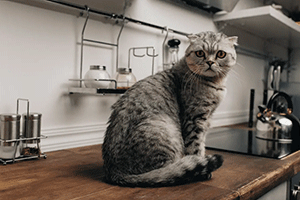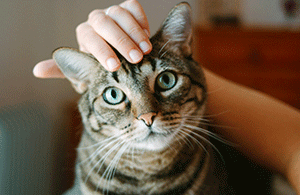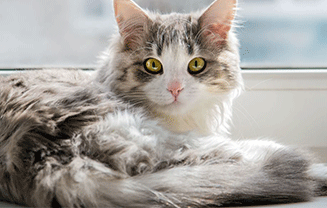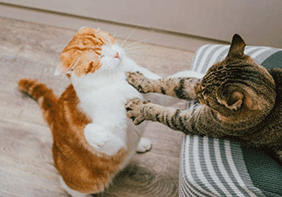Choosing between a male and female cat is a common dilemma for prospective cat owners. Each gender has unique characteristics and potential behavioral differences. Understanding these can help you make an informed decision that suits your lifestyle and preferences.
Other Topics You Might Like
Helpful Products You Might Like

Product Name

Product Name

Product Name
"(Paid Links)" 
Personality and Behavior
Male Cats
Male cats, especially if neutered, are often described as more affectionate and social than females. They tend to bond closely with their human companions and are more likely to enjoy being handled and cuddled. Male cats are also known for their playful and outgoing nature, making them ideal for families with children or other pets.
However, unneutered males can exhibit territorial behaviors, such as spraying to mark their territory. Neutering generally reduces these behaviors and also prevents certain health issues.

Female Cats
Female cats can be more independent and reserved compared to males. They might take longer to warm up to new people and environments, displaying a cautious and observant demeanor. Once they bond with their humans, they can be just as loving and loyal as males, though their affection may be more subtle.
Unspayed females go through heat cycles, which can lead to increased vocalization and restlessness. Spaying eliminates these cycles and associated behaviors, contributing to a calmer disposition.
Health Considerations
Males
Neutered male cats are at a slightly higher risk of developing urinary tract issues, such as blockages, due to their narrower urethras. However, providing a proper diet and ensuring they stay hydrated can mitigate these risks.
Females

Spayed female cats have a lower risk of certain reproductive cancers, such as ovarian and uterine cancer. They are also less prone to urinary issues compared to males. Regular veterinary check-ups are crucial for both genders to maintain optimal health.
Activity Level and Playfulness
Male cats often retain their playful nature well into adulthood. They enjoy interactive play and can be more adventurous, making them fun companions. If you’re looking for a cat that’s always up for a game, a male might be the right choice.
Female cats, while also playful, might engage in more solitary or observational play. They can be less demanding of your attention but still enjoy interactive toys and activities. If you prefer a slightly calmer pet, a female cat might suit you better.
Living Arrangements
Consider your living situation when choosing the gender of your cat. Male cats may adapt better to busy households with multiple pets and children due to their social nature. Female cats might thrive in quieter environments where they can establish their territory without too much disruption.
Adoption and Bonding
Regardless of gender, the individual personality of each cat plays a significant role in how well they will fit into your home. Spend time with potential pets to observe their behavior and see how they interact with you and others. Many animal shelters and rescue organizations can provide insights into the personalities of their cats, helping you find a perfect match.

Conclusion
Ultimately, whether you choose a male or female cat depends on your personal preferences and lifestyle. Both genders can make wonderful companions with their unique traits and behaviors. Ensure you provide a loving and supportive environment for your new feline friend, and you'll be rewarded with years of affection and companionship.
